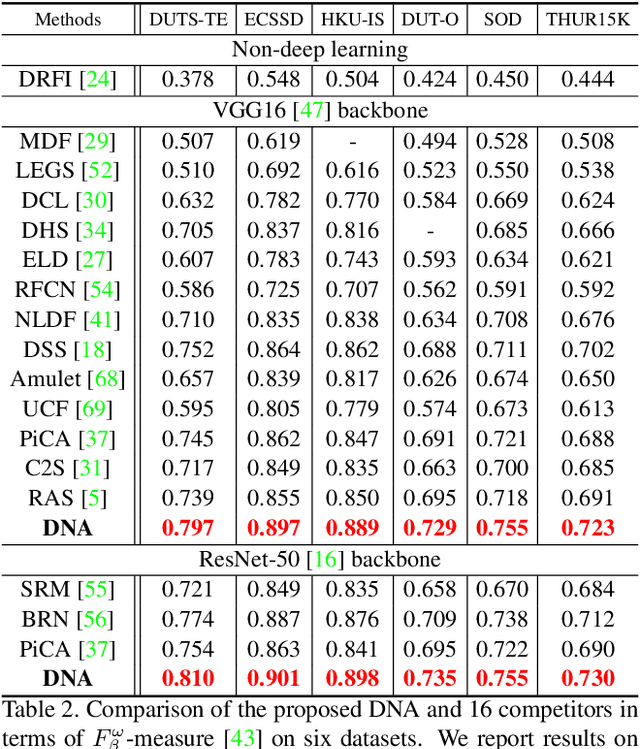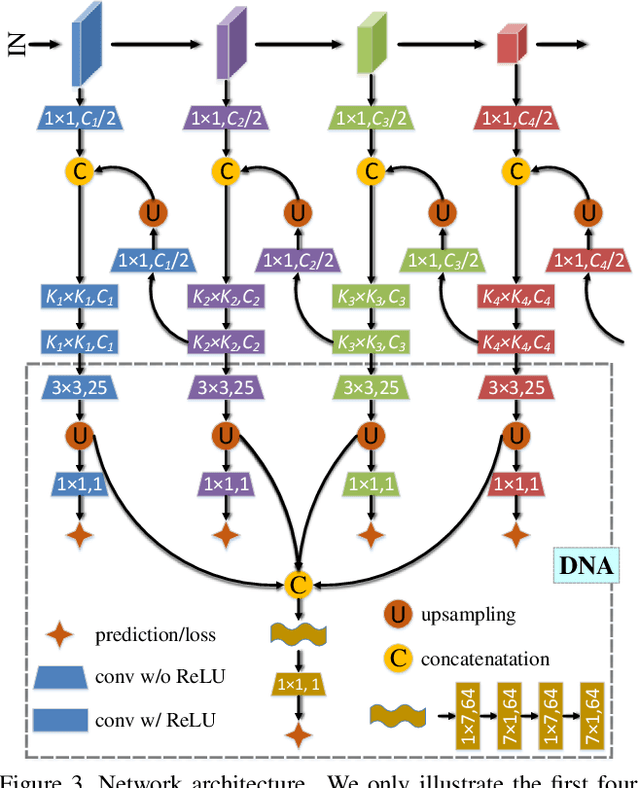DNA: Deeply-supervised Nonlinear Aggregation for Salient Object Detection
Paper and Code
Mar 28, 2019



Recent progress on salient object detection mainly aims at exploiting how to effectively integrate multi-scale convolutional features in convolutional neural networks (CNNs). Many state-of-the-art methods impose deep supervision to perform side-output predictions that are linearly aggregated for final saliency prediction. In this paper, we theoretically and experimentally demonstrate that linear aggregation of side-output predictions is suboptimal, and it only makes limited use of the side-output information obtained by deep supervision. To solve this problem, we propose Deeply-supervised Nonlinear Aggregation (DNA) for better leveraging the complementary information of various side-outputs. Compared with existing methods, it i) aggregates side-output features rather than predictions, and ii) adopts nonlinear instead of linear transformations. Experiments demonstrate that DNA can successfully break through the bottleneck of current linear approaches. Specifically, the proposed saliency detector, a modified U-Net architecture with DNA, performs favorably against state-of-the-art methods on various datasets and evaluation metrics without bells and whistles. Code and data will be released upon paper acceptance.
 Add to Chrome
Add to Chrome Add to Firefox
Add to Firefox Add to Edge
Add to Edge